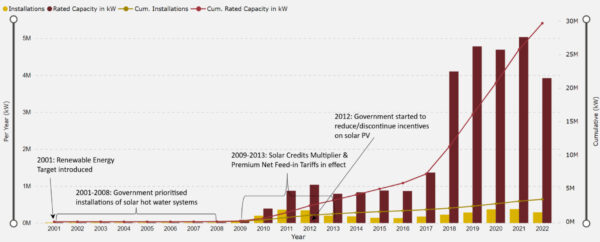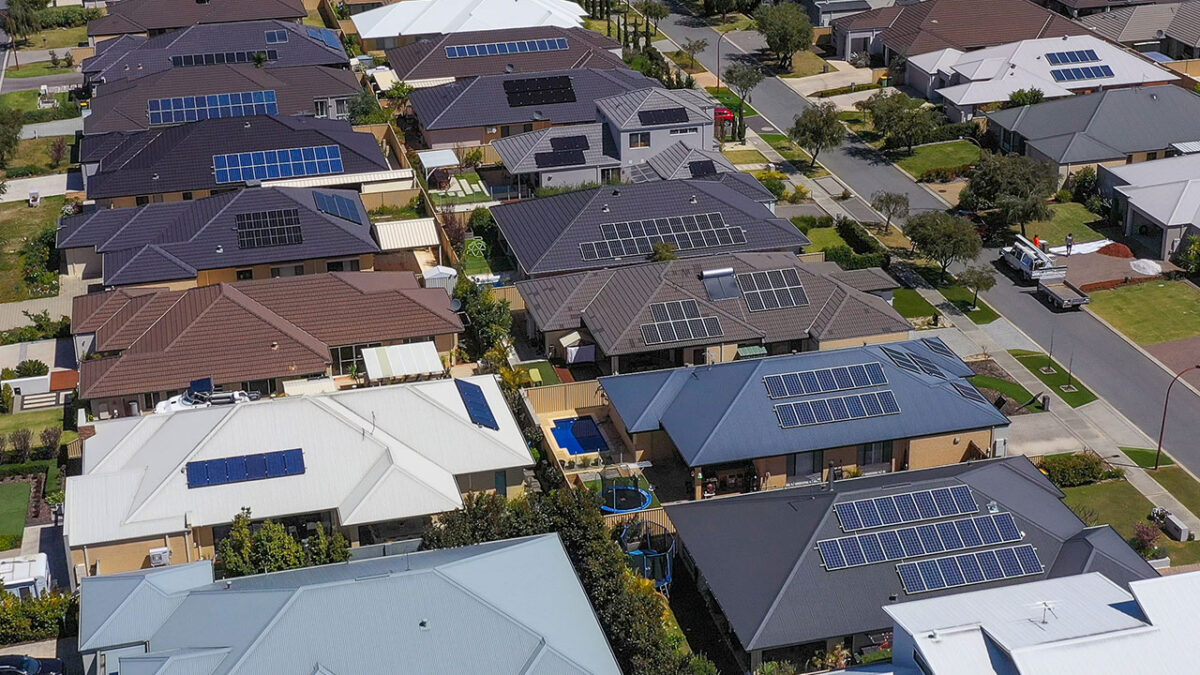A University of Technology Sydney (UTS) study has found a ‘neighbourhood effect’ increases adoption of rooftop solar, external to other influences like government rebates, based on socio-economic data, with potential insights for clean energy policy makers.
The ‘Solar Energy Surge: The socio-economic determinants of the photovoltaic systems growth in Australia’ research, found Australia’s initial uptake of solar was prompted by government-driven schemes but over time correlates increasingly by what neighbours are doing.
To detect the presence of a neighbourhood effect, researchers developed a formula to simplify quantification, finding that gender, share of certain age groups, land area and dwellings with a vehicle do not correlate with adoption.

Image: University of Technology, Sydney
They found, however, variables such as marital status, weekly household income, number of bedrooms, population and dwellings densities to have influences, positively and negatively, while the accelerate rate of uptake resulted in 15-20 more rooftop solar systems being installed in a neighbourhood.
“As much as decisions in adopting are made based on economic sense, decisions borne of emotions do occur,” the research paper says.
“More dominant to decision-making is the influence of surroundings, and not the perceived assessment of outcomes … and best explain the prevalence of neighbourhood effects in technology adoptions, such as solar installations.”
The study tracked data concerning solar panel installations per month per postal area (POA) across Australia from 2001 to 2022 pooled for a cross sectional regression analysis against the census data pack from the Australian Bureau of Statistics.
This content is protected by copyright and may not be reused. If you want to cooperate with us and would like to reuse some of our content, please contact: editors@pv-magazine.com.








By submitting this form you agree to pv magazine using your data for the purposes of publishing your comment.
Your personal data will only be disclosed or otherwise transmitted to third parties for the purposes of spam filtering or if this is necessary for technical maintenance of the website. Any other transfer to third parties will not take place unless this is justified on the basis of applicable data protection regulations or if pv magazine is legally obliged to do so.
You may revoke this consent at any time with effect for the future, in which case your personal data will be deleted immediately. Otherwise, your data will be deleted if pv magazine has processed your request or the purpose of data storage is fulfilled.
Further information on data privacy can be found in our Data Protection Policy.